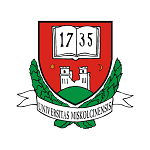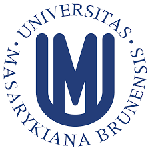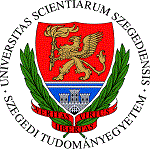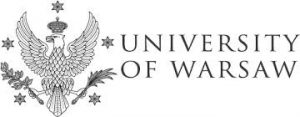Institutions:
 University of Miskolc (coordinator), Miskolc, Hungary
University of Miskolc (coordinator), Miskolc, Hungary
The Faculty of Arts was established in 1992 and over the years, besides its extensive research activities, it has developed a strong teacher training profile. It currently runs double major teacher training courses and MA-level teacher training courses involving 12 subject areas. Its special focus is the pedagogy of inclusion, and the Faculty of Arts has initiated a variety of supportive actions in this direction, including supporting small schools in the region with a significantly high SD learner population, and integrating inclusion as a priority into teacher training courses. The Faculty has successfully completed one national and three EU-financed projects aiming to integrate innovative practices improving the education of SD learners into teacher training, produce materials for teaching Hungarian as a Second Language to migrant and Hungarian – largely Roma – learners who have restricted competence in Hungarian, and improve the educational chances of SD learners through awareness raising and digital innovation.
To coordinate pedagogical research and training activities, the University of Miskolc established the Complex Instruction Programme Centre in 2015. The Centre’s main objective is to foster inclusive education, conduct and disseminate research on improving the educational opportunities of SD learners, and initiate innovation in teacher training.
Participating staff
 Lancaster University, Lancaster, UK
Lancaster University, Lancaster, UK
The Department of Linguistics and English Language at Lancaster University is ranked 19th in the world for Linguistics in the International QS rankings 2017, 4th in the UK in The Times Good University Guide Subject Ranking, and 5th in the UK in the 2016 Complete University Guide. The department’s specialisms include Corpus Linguistics; Discourse Studies; Language Teaching, Learning and Assessment, Literacy Studies and many others. Over 70% of our undergraduate students attain a graduate level position 6 months after graduating. The department offers many popular postgraduate programmes, onsite and distance.
The Department of Linguistics and English Language has over 30 years of experience of being involved in international and European Union funded collaborative research and teaching-related projects. The latest example for such a project is the Dystefl (Dyslexia for Teachers of English as a Foreign Language) funded by the European Commission’s Lifelong Learning program. It ran between 2013 and 2015 and was awarded the British Council’s Excellence in Course Design prize.
The Lancaster team brings its expertise in the field of dyslexia and second language learning and teaching and computer assisted language teaching to the project. Professor Judit Kormos is a well-known researcher in the field of second language acquisition who investigates the impact of specific learning differences on the processes of language development. She has also developed the successful Dyslexia and language teaching massive open online learning course and has run teacher training workshops worldwide. Dr. Marije Michel has published widely on using computer-based tools to enhance language learning and has been involved in training teachers of German and Dutch as a second language. Dr. Uschi Maiden-Weinberger, who is the research associate of the Lancaster team, has experience in teaching German as a foreign language and using corpus-based tools in language teaching.
Participating staff
Dr. Uschi Maden-Weinberger
Lingua-Met General Partnership
The company used to run a private language school for families who wanted their children to acquire English, German and Russian in an informal way. The school took learners between the ages of 5 – 14 for afternoon classes, weekend and summer courses. The number of groups and staff varied from term to term but during their 5 years of existence, over 500 students were educated by a small staff of approximately 15 teachers. Task-based learning was highlighted and communicative approach was put into focus. Learner and teacher autonomy played a key role. They were involved in piloting audio-visual and printed course materials as well as internet-based activities for young learners. A group of learners took part in an international project aimed at developing language communication competences and ICT skills. The school also provided a field for teaching practice for young graduated language teachers. The founders of the company organised in-service training courses for primary school teachers and private school staff members in the fields of teaching young learners, using audio-visual materials in the language classroom, applying techniques of the communicative approach with the focus on competence development.
The private language school provided an efficient background for trying out different task-based activities planned for young learners in order to develop their language and other competences. The experience gained there was used in course material development, in course book writing and planning series of pre-service and in-service training events and methodology workshops. Zsuzsánna Poór was awarded the title Outstanding Course Book Writer by the National Association of Textbook Publishers and Distributors in Hungary in 2011.
Currently, the founders of the company work for primary and higher education. They are involved in further innovations such as participating in projects for learners with special needs, developing teaching aids for using authentic materials in and outside the classroom, finding efficient ways for communicative competence development and organising in-service training events.
Participating staff
Zsuzsánna Poór
 Masaryk University, Brno, Czech Republic
Masaryk University, Brno, Czech Republic
The primary goal of the Faculty of Education is to provide education to the teachers of primary and lower secondary schools, and of secondary schools in certain fields. Apart from pre-service study programmes, also in-service programmes are offered, either as combined study programmes or as study programmes within the framework of lifelong education. Moreover, we offer short-term courses for practising teachers.
The members of the English and German departments participated in “Special Educational Needs in the Context of Framework Educational Programmes for Basic Schools” Research Centre co-ordinated by the Department of Special Education at the Faculty of Education, Masaryk University (VZ MSM 0021622443, 2007 – 2013). The long-term research realized by the Centre focused on the education of pupils with SEN, including dyslexia. The key issues included the development of foreign language communicative competences of pupils with SEN, support of learning strategies, analysis of foreign language course books, use of alternative teaching methods and drama education in foreign language classes, and evaluation and self-evaluation of pupils with SEN.
From 2011 to 2013 the members of the English Department participated in Comenius Lifelong Project 518466-LLP-1-2011-1-PL-COMEDyslexia for Teachers of English as a Foreign Language. The project consortium of partners from 6 European countries designed a training course and course materials for teachers of English as a foreign language who teach learners with dyslexia. The course was published in 2013 and also offered to teachers and teacher trainers online in a self-study mode (http://dystefl.eu/index.php).
Participating staff
Navigates Unlimited Partnership
The specific activities include
– preparing the hardware and software environment for supporting the development of online, digital and interactive workbooks,
– tailoring and providing access to Screenager for partner institutions,
– providing trainings to Screenager users,
– providing digital support for materials development.
Participating staff
Dr. Anita Horkai
István Horkai
 University of Szeged, Szeged, Hungary
University of Szeged, Szeged, Hungary
The priorities of the Teacher Training Faculty include curriculum development for both typical students and students with dyslexia and other learning difficulties. Extensive research has been conducted on the neurological bases of speech disorders, as well as teachers’ practices and difficulties in teaching foreign languages to learners with learning difficulties. The findings have been integrated into a series of teaching resources and pedagogical training materials.
Participating staff
Dr. György Scheibl
 University of Warsaw, Warsaw, Poland
University of Warsaw, Warsaw, Poland
UW participates actively in
- a) the EU’s Life Long Learning Programme, incl. Erasmus+ (Mobility project: 2,350 outg.& incoming mobilities in 2015/16, budget – 3,700,000 EUR);
- b) the EU’s Erasmus Mundus (A1 – 2 projects ADVANCES, GEM; A2 – 31 projects with HEIs from Asia, Russia, Middle East, Latin America, coordinating 4 projects SIGMA/ SIGMA Agile – Western Balkans; SALAM/SALAM 2 – Iran, Iraq, Yemen);
- c) research- the most active Polish HEI (99 projects within 7th FP and 25 projects within Horizon 2020 in natural sciences, informatics, mathematics, economy, sociology, chemistry, technology transfer, psychology, modern languages).
UW is a member of international associations & networks, i.a. EUA, UNICA, HUMANE, NOHA, BSRUN.
The Institute of Applied Linguistics (ILS), University of Warsaw, is an independent research and training unit, educating translators, linguists and foreign language teachers.
The Institute’s staff members conduct research in the field of linguistics (communication theory, language teaching and translation studies), interdisciplinary approaches to language and society, as well as in areas pertaining to cultural studies and literary theory. The following subfields of linguistics are of particular interest to our staff: discourse analysis, text-type analysis, foreign language teaching, grammar, contrastive grammar, cognitive linguistics, text linguistics, corpus linguistics, lexicology and lexicography, neurolinguistics, psycholinguistics, semantics, semiotics, sociolinguistics, intercultural communication, terminology and terminography, conference interpreting, translation studies and specialised translation.
Participating staff
